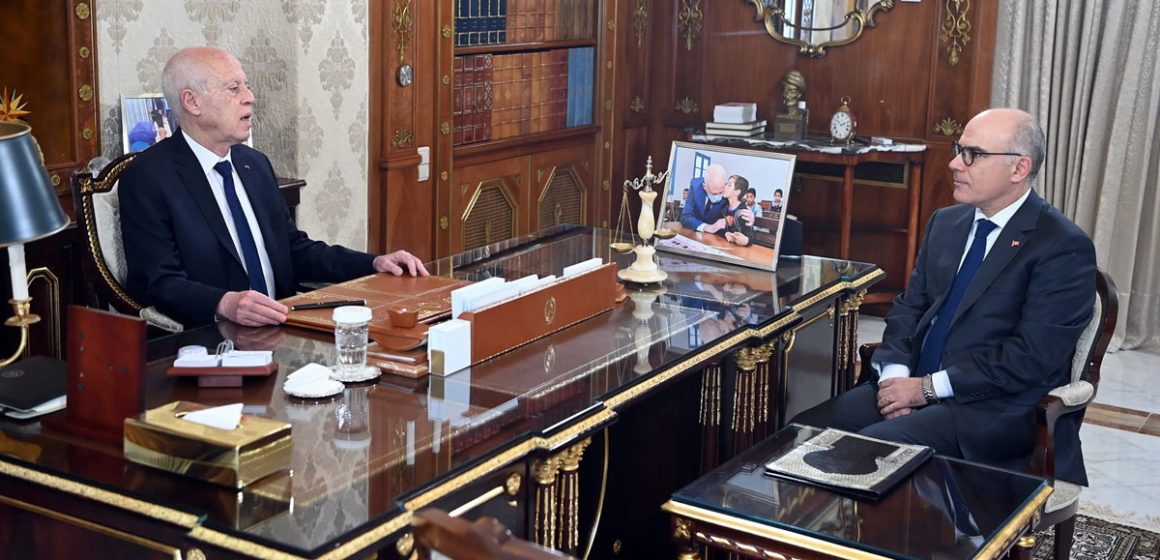By putting back on the table the question of Tunisia’s probable membership of the Brics group, is President Kaïs Saïed trying to put pressure on the United States and the European Union, Tunisia’s historical partners, to silence their criticisms of him on the subject of rights and freedoms?
By Imed Bahri
The question of Tunisia’s probable application for membership of the Brics group is not really buried, as some members of the Tunisian government have suggested, such as Samir Saïed, Minister of Economy and Planning, who , during a plenary session at the Assembly on July 29, declared that the volume of the Tunisian economy does not allow him to join the Brics.
Indeed, the President of the Republic Kaïs Saïed discussed, during his meeting, Friday August 18, 2023, at the Carthage Palace, with the Minister of Foreign Affairs, Migration and Tunisians Abroad, Nabil Ammar, who came report to him on his recent visit to Algeria, “Tunisia’s participation in the meeting to be held in South Africa at the end of this month and which will bring together the heads of state and government of the member states of the BRICS group with a number of partner countries.
Big neighbor and little neighbor
The press release does not specify at what level or in what capacity Tunisia will participate in this meeting, as it is still officially neither a full member nor a candidate for membership of this group, but the very mention of the South African meeting , in the wake of political and diplomatic consultations with Algeria, which has officially asked to join this group, is not insignificant and cannot go unnoticed. Especially since Kaïs Saïed’s Tunisia feels increasingly cramped in its relations, too exclusive and restrictive for the taste of the tenant of the Carthage palace, with the Western bloc, the United States and the European Union in mind, very attentive on the questions of freedoms and rights.
Is Algeria seeking to drag its “little neighbour” in its wake by working diplomatically to strengthen relations between Tunisia and the member countries of the BRICS, which are long-time allies of Algiers, in particular Beijing and Moscow?
Unless President Saïed seeks to use this Brics card to put pressure on Washington and Brussels and silence their critics of him. Which is also not excluded. And that would be, so to speak, fair game.
It is in this context that Nabil Ammar’s visit to Moscow on July 27 should also be seen, where the Tunisian minister requested Russian assistance for the supply of cereals to Tunisia at a preferential price. . Tunisia also needs Russian fertilizers, oil and tourists to relieve its struggling economy.
Regarding Algeria, whose interference in Tunisian affairs is increasing at various levels, the President of the Republic underlined, according to the press release from the Presidency, the shared desire to develop bilateral relations, because “the history of two countries and their present are one and their future will be too”, in a clear response to analysts who deplore what they call the relationship of “vassalization” between Tunisia and its “great neighbor”.
This article is originally published on kapitalis.com









